Ajit

Subscribe to read full article
This section is for paid subscribers only. Our subscription is only $37/- for one full year.
You get unlimited access to all paid section and features on the website with this subscription.
Not ready for a full subscription?
You can access this article for $2 , and have it saved to your account for one year.
- Real Name: Hamid Ali Khan
- Born: 27 January, 1922 (Golconda, Hyderabad)
- Died: 22 October, 1998 (Hyderabad)
- Primary Cinema: Hindi
- Parents: Bashir Ali Khan, Sultan Jehan Begum
- Children: Shehzad Khan, Arbaaz Ali Khan, , Zahid Ali Khan, Abid Ali Khan, Shahid Ali Khan
“His villainy started a new trend. Here was a new villain who was soft-spoken yet forceful. We wanted to give a different image to villainy which matched the hero,” thus did Zanjeer (1973) scriptwriter Javed Akhtar summarise the smooth, suit-wearing, Clarke Gable-fashion moustache-sporting Ajit. Acting in over 200 films over nearly four decades, Ajit was one of the most memorable villains of the Hindi film screen, also starring in lead roles in popular films like Nastik (1954), Bara Dari (1955), Bada Bhai (1957), Milan(1958), and later as a second lead in Naya Daur (1957) and Mughal-e-Azam (1960). Charming in his wickedness and outrageous with his double entendre, Ajit became nothing short of a national folk hero. Essaying the heartless villain, he would invariably be the don to tier 2 villains, with a battalion of henchmen named Robert, Michael and Peter, to order around, and a female accomplice named Mona. Decades later, ‘Ajit jokes’ continue to hold sway, with millennials spouting nonsensical yet iconic Ajit-style dialogues such as ‘Lily don’t be silly’ (Zanjeer) or ‘Saara shahar mujhe Lion ke naam se janta hai’ (Kalicharan, 1976) in the actor’s typical style.
Born Hamid Ali Khan on 27 January, 1922 into a Deccani Muslim family of Hyderabad near Golconda, his father, Bashir Ali Khan was in the Nizam's service, and his mother, Sultan Jehan Begum, a housewife. One of four children, Ajit famously sold his college books to make his way to Bombay to try his luck in films. Working as an extra in several films, he managed to bag his first leading role. Shahe Misra (1946) was among his earliest films, acting opposite Geeta Bose, followed by Hatimtai (1947), Aap Beeti (1948), and Sone Ki Chidiya (1948). However, success was elusive, even in the films that followed. Going on to adopt the name Ajit which means indomitable, as he was advised, he had a huge hit with Beqasoor (1950) featuring Madhubala. More leading roles followed, with Ajit doing credible work in films like Nastik, Bada Bhai, Milan, Baradari opposite Geeta Bali, and Dholak(1951). Making a mark as a stunt hero, the strapping Ajit had two of his best-known films in 26 January (1956) co-starring Nalini Jayant, and Naya Daur, in which he essayed the hero’s best friend and rival in love.
However, by the time Tower House (1962) released, Ajit's innings in cinema was close to ending. A resurrection, though, was in store, with him finding his true calling as a villain in Suraj (1966), starring Rajendra Kumar and Vyjayanthimala. It was apparently Rajendra Kumar, his good friend, who advised and helped him to become a leading villain rather than a second-lead hero. Ajit’s credentials as a villain were emphatically cemented with Zanjeer in which he played Teja, the chilling ganglord, whose horse-shaped bracelet gives Amitabh Bachchan nightmares, and who is the killer of the hero's parents. He dripped civilised villainy, as seen it the scene where Ajit is dining at a restaurant when Amitabh, just out of jail after being framed by Ajit, enters. Bachchan announces, "Teja main wapas aa gaya." Without turning a hair, Ajit responds, "Kaho to main phir andar bhijwata hoon."
Zanjeer was followed by Yaadon ki Baraat (1973), in which Ajit played the scheming, gentlemanly killer wearing different sized shoes on each foot, followed by Kalicharan (1976). In the mid-seventies he had acted in over 57 films, mostly as a villain, his dialogue delivery and style making him a standout as always. Over the four decades of his film career, Ajit had acted along with the legendary Prithviraj Kapoor, Sohrab Modi, Amitabh Bachchan, I S Johar, Dilip Kumar, Dev Anand, Shammi Kapoor, and Dharmendra as well as many actresses, across generations.
The 80s had already seen a wave of Ajit jokes descend upon the country, with such gems as ‘Usse Hamlet poison de do, to be se not to be ho jayega’, as well as ads that had punchlines which took off on his unique dialogue delivery style – ‘Bass, pass the saas’ for a ketchup brand, and ‘Maal laye ho?’ for a popular biscuit brand. The veteran actor, however, was not amused and felt the jokes trivialised his art.
He had his last fling with celluloid in early '90s, in films such as Jigar (1992), Aa Gale Lag Jaa (1994), and Aatish (1994). Ajit passed away on 22 October, 1998.
References
Image Courtesy: Filmfare December 21, 1956
-
Filmography (166)
SortRole
-

Criminal 1995
-

Pathreela Raasta 1995
-

Aatish Feel the Fire 1994
-

Aadmi 1993
-

Police Officer 1992
-
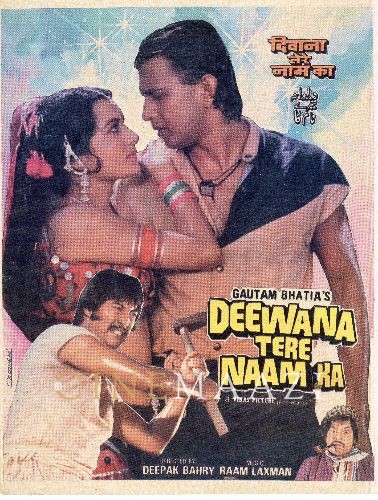
Deewana Tere Naam Ka 1987
-
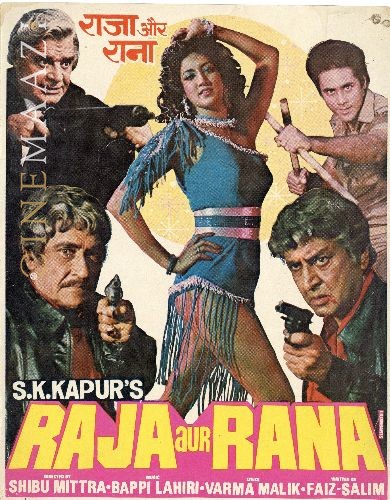
Raja Aur Rana 1984
-
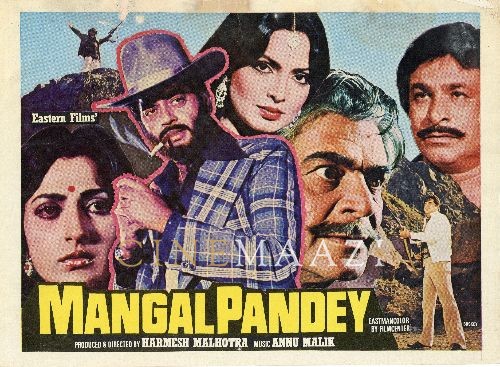
Mangal Pandey 1983
-

Khoon Aur Paani 1981
-
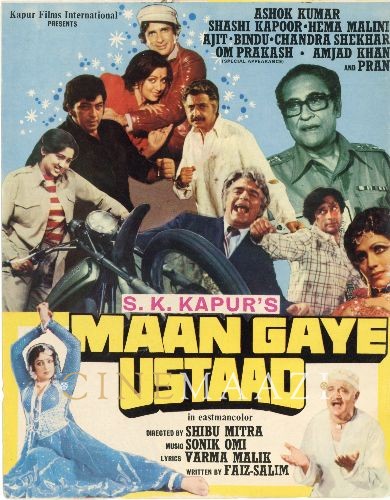
Maan Gaye Ustaad 1981
-

Kaala Pani 1980
-
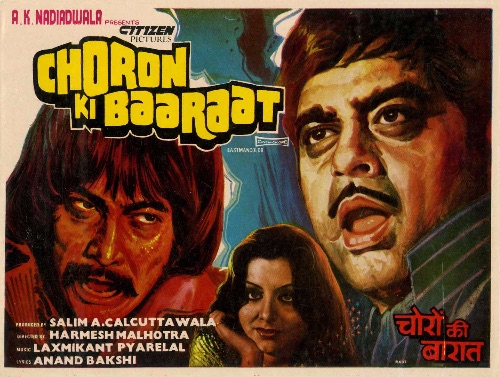
Choron Ki Baaraat 1980
-






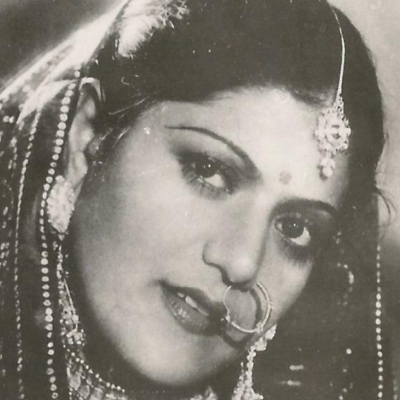


.jpg)



